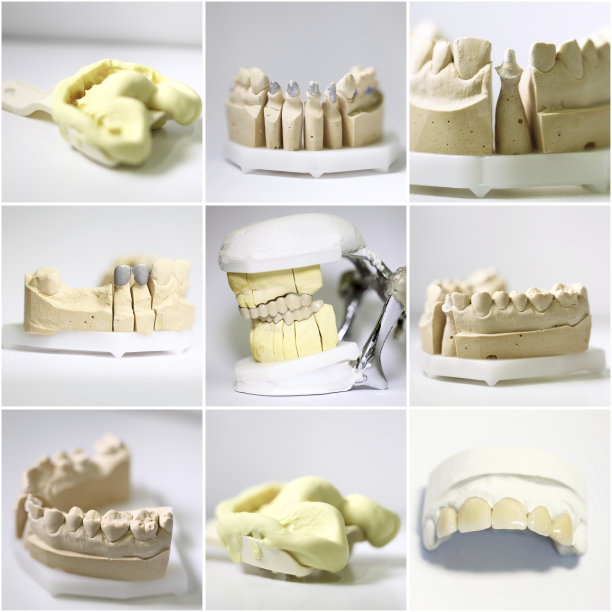Summary: This article delves into the essential considerations and precautions necessary before undergoing dental fillings to ensure optimal oral health and recovery. It outlines critical factors including the assessment of dental needs, the choice of filling materials, the importance of understanding the procedure, and post-treatment care. By carefully considering each aspect, patients can enhance their overall experience and achieve better long-term oral health outcomes.
1. Assessing Your Dental Needs Thoroughly

Before deciding on dental fillings, it is crucial to assess your specific dental needs. Schedule a comprehensive examination with your dentist, who will evaluate the extent of decay or damage in your teeth. This initial assessment will provide essential insights into the severity of the issue and help determine the appropriate treatment plan.
Another important factor to consider is the timing for the procedure. If you have multiple cavities or dental issues, your dentist may recommend scheduling the fillings in stages. This could improve comfort and reduce stress during the treatment process.
Additionally, discuss your dental history honestly with your provider. Previous treatments, allergies, or sensitivities may affect the choice of materials and techniques used in your dental fillings. Clear communication will ensure a tailored approach to your unique dental situation.
2. Choosing the Right Filling Materials
The materials used for dental fillings are diverse, and choosing the right one is pivotal for your oral health. Common options include amalgam, composite resins, glass ionomer, and porcelain. Each material has its benefits and drawbacks, encompassing aspects like durability, cost, and aesthetic appeal.
For instance, amalgam fillings are known for their strength and are often used for back teeth, whereas composite fillings offer a more natural appearance and are suitable for front teeth. Your dentist should explain these options thoroughly, enabling you to make an informed choice based on your personal preferences and specific needs.
Furthermore, consider the longevity and care involved with different filling materials. Some require more maintenance than others. Understanding these nuances will aid in sustaining your oral health effectively and can help prevent future dental issues.
3. Understanding the Dental Filling Procedure
Having a clear understanding of the dental filling procedure can greatly alleviate anxiety. The process typically involves numbing the affected area, removing the decayed tooth material, and filling the cavity. Your dentist should walk you through each step beforehand so you know what to expect.
Be aware of the potential sensations during the procedure, including pressure or vibrations. While pain is generally not a factor due to local anesthesia, some patients might experience discomfort afterward. Being mentally prepared can ease your worries and help you remain calm during treatment.
Additionally, ensure you ask your dentist for advice regarding any necessary pre-treatment preparations. This could include dietary restrictions or medications to avoid prior to the visit, giving you a smoother experience in the dental chair.
4. Implementing Post-Treatment Care
Post-treatment care plays a vital role in ensuring optimal recovery after dental fillings. Right after the procedure, follow your dentists instructions carefully, which may include avoiding certain foods, drinks, or intense physical activities for a short period to allow the area to heal.
Oral hygiene should be maintained diligently, but with extra caution immediately after getting fillings. Brushing and flossing around the treated area may require special attention, as it could be sensitive during the healing phase. Ensuring that your mouth is clean will greatly aid in preventing future decay.
Finally, remain observant for any unusual symptoms post-treatment. If you experience persistent pain, swelling, or signs of infection, do not hesitate to contact your dentist. Early intervention in case of complications can lead to better outcomes and peace of mind.
Summary:
In conclusion, preparing for dental fillings involves careful consideration of various factors. By assessing your dental needs, choosing the appropriate filling materials, understanding the filling procedure, and implementing effective post-treatment care, you can ensure a smooth experience and promote optimal oral health.
This article is compiled by Vickong Dental and the content is for reference only.
Vickong Dental
Vickong Dental is a large medical group established in Hong Kong in 2008 by professors from well-known medical universities in Guangdong and Hong Kong, as well as medical doctors from key national '985' universities (including Master's supervisors and senior professors). The chain of branches brings together expert dentists with PhDs and Master's degrees from Hong Kong and Mainland China, committed to providing high-quality dental treatment.
"Vickong Dental Practices the University Motto of 'Healing and Serving Society,' with a Stable Operation for Sixteen Years. It Has Been honored with Hong Kong Enterprise Leaders's Choice,' and is a Global Trusted Implant Center for the Nobel Implant System. Recommended by Hong Kong Metro Broadcast and Guangdong Television, it Serves Customers from Over Thirty Countries and Regions, Gaining the Trust and Favor of Citizens from the Guangdong-Hong Kong-Macau Greater Bay Area and Surrounding Cities.

Thousands of customers' unanimous praise
The most recognized and highly recommended dental service by customers in the Guangdong-Hong Kong-Macau Greater Bay Area
We Ensure You Receive Detailed Care and Attention Here
Hong Kong standards, Shenzhen prices, Your Trusted English-speaking dentists

Vickong Dental Medical-Grade Instrument Disinfection Process
Vickong Dental Medical-Grade Instrument Disinfection Process

Vickong Dental Chain: A Warm and Comfortable Environment for Treatment






Appointment Hours

Q&A
Why choose Vickong Dental?
Vickong Dental practices the university motto 「Medicine to Benefit Society」, with each branch bringing together highly qualified dentists with doctoral and master’s degrees from Hong Kong and the Mainland, and has maintained seventeen years of steady operation。Recipient of 「2024 Hong Kong Enterprise Leaders Brand」, 「2025 Hong Kong Enterprise Leaders Brand」, a Nobel Biocare Global Trusted Implant Center, and a brand recommended by Metro Radio Hong Kong and Guangdong TV。
To date, we have served customers from more than thirty countries and regions,earning exceptionally high word-of-mouth recognition and trusted recommendations from residents across the Guangdong-Hong Kong-Macao Greater Bay Area and surrounding cities
We have eight major branches in Zhuhai、Shenzhen,and a consultation and service assurance center in Hong Kong,so you can book a free consultation at any time for any questions,which is very reassuring.
If I do not accept the quotation after the CT scan, will I be charged??
No! As long as the actual treatment has not started, you will not be charged any fees.
Will there be any additional charges during the treatment process?
No, there won’t be any additional charges. Before treatment begins, we will clearly explain the treatment plan and its corresponding fees. Only after the patient agrees and signs the consent form will we proceed with the dental service.
Can I pay in Hong Kong dollars?
Yes. Vickong Dental accepts payment in Hong Kong dollars. The amount will be converted based on the exchange rate of the day, and the applicable rate will be clearly communicated to you in advance.
Can I reschedule my appointment at any time?
Yes. Please contact us via **WeChat** or **WhatsApp** as early as possible, providing your original appointment time and details, along with your preferred new date and time slot for rescheduling.













